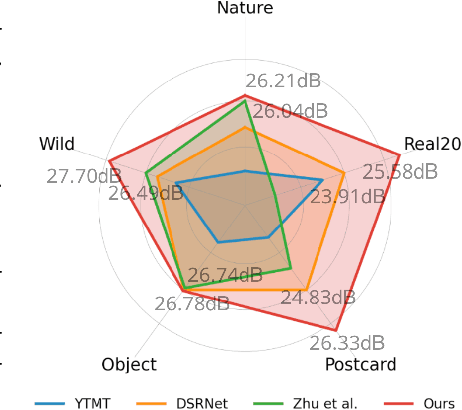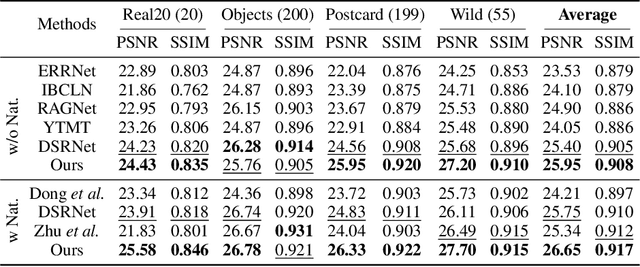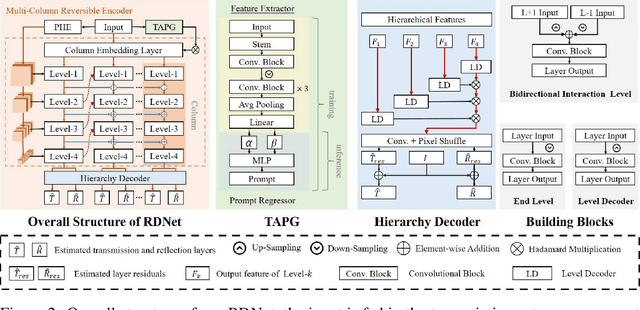Reversible Decoupling Network for Single Image Reflection Removal
Paper and Code
Oct 10, 2024



Recent deep-learning-based approaches to single-image reflection removal have shown promising advances, primarily for two reasons: 1) the utilization of recognition-pretrained features as inputs, and 2) the design of dual-stream interaction networks. However, according to the Information Bottleneck principle, high-level semantic clues tend to be compressed or discarded during layer-by-layer propagation. Additionally, interactions in dual-stream networks follow a fixed pattern across different layers, limiting overall performance. To address these limitations, we propose a novel architecture called Reversible Decoupling Network (RDNet), which employs a reversible encoder to secure valuable information while flexibly decoupling transmission- and reflection-relevant features during the forward pass. Furthermore, we customize a transmission-rate-aware prompt generator to dynamically calibrate features, further boosting performance. Extensive experiments demonstrate the superiority of RDNet over existing SOTA methods on five widely-adopted benchmark datasets. Our code will be made publicly available.
 Add to Chrome
Add to Chrome Add to Firefox
Add to Firefox Add to Edge
Add to Edge